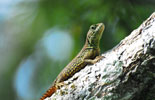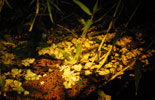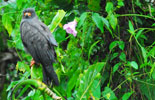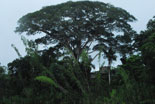 |
 |
 |
Ecuador
DSF has produced a new short film about one of Ecuador's most important and imperiled National Parks, Yasuní. As pointed out by the Yasuní-Itt Initiative Trust Fund within the United Nations Development Group (UNDP), Yasuní is "one of the most bio-diverse spots on Earth; One hectare in Yasuní contains more tree species than are native to the whole of North America…" http://mptf.undp.org/yasuni
Indeed, estimates on invertebrate species in Yasuní suggest it holds the largest number in the world in the smallest area. Superlatives abound for the biodiversity, and indigenous cultures that call Yasuní home. But what is particularly critical at this point in time is that fact while nearly 50% of Ecuador's economy comes from the sale of oil, the country is hoping to forego extraction of an estimated 846 million barrels of oil that happen to lie directly beneath Yasuni National Park. By foregoing this potential economic windfall, Ecuador will prevent the introduction of an estimated 407 million metric tons of carbon dioxide emissions into the atmosphere as a result of its non-extraction and burning of the oil, as well as an estimated additional 800 million metric tons of carbon dioxide from avoided deforestation, not to mention more than $7 billion dollars in potential revenue.
The stakes for the country and for the precious, unprecedented biodiversity of Yasuní National Park could not be higher. The film, "Yasuní– A Meditation on Life," with a premiere at the Rio+20 Summit, will be distributed via web-based and other outlets so that this remarkable microcosm of the world's wherewithal to protect life on Earth can be championed; a template for restraint in a world desperately seeking models for mitigating climate change, and new, positive examples of nations resolved to protect their indigenous biodiversity.
 |
 |
|
 |
 |

